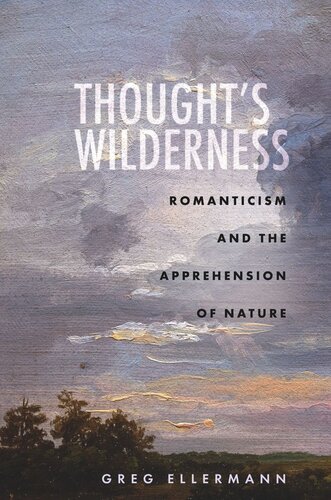

Most ebook files are in PDF format, so you can easily read them using various software such as Foxit Reader or directly on the Google Chrome browser.
Some ebook files are released by publishers in other formats such as .awz, .mobi, .epub, .fb2, etc. You may need to install specific software to read these formats on mobile/PC, such as Calibre.
Please read the tutorial at this link: https://ebookbell.com/faq
We offer FREE conversion to the popular formats you request; however, this may take some time. Therefore, right after payment, please email us, and we will try to provide the service as quickly as possible.
For some exceptional file formats or broken links (if any), please refrain from opening any disputes. Instead, email us first, and we will try to assist within a maximum of 6 hours.
EbookBell Team

4.7
16 reviewsWhile much recent ecocriticism has questioned the value of nature as a concept, Thought's Wilderness insists that it is analytically and politically indispensable, and that romanticism shows us why. Without a concept of nature, Greg Ellermann argues, our thinking is limited to the world that capitalism has made.
Defamiliarizing the tradition of romantic nature writing, Ellermann contends that the romantics tried to circumvent the domination of nature that is essential to modern capitalism. As he shows, poets and philosophers in the period such as Immanuel Kant, G. W. F. Hegel, Mary Wollstonecraft, William Wordsworth, and Percy Shelley were highly attuned to nature's ephemeral, ungraspable forms: clouds of vapor, a trace of ruin, deep silence, and the "world-surrounding ether." Further, he explains how nature's vanishing—its vulnerability and its flight from apprehension—became a philosophical and political problem. In response to a nascent industrial capitalism, romantic writers developed a poetics of wilderness—a poetics that is attentive to fleeting presence and that seeks to let things be. Trying to imagine what ultimately eludes capture, the romantics recognized the complicity between conceptual and economic domination, and they saw how thought itself could become a technology for control. This insight, Ellermann proposes, motivates romantic efforts to think past capitalist instrumentality and its devastation of the world.
Ultimately, this new work undertakes a fundamental rethinking of the aesthetics and politics of nature.